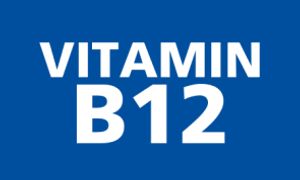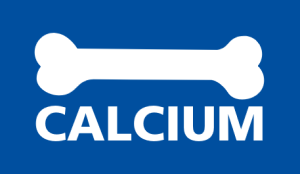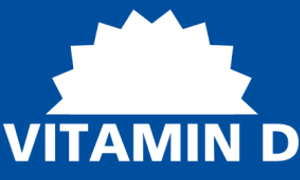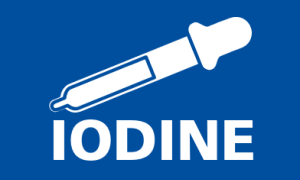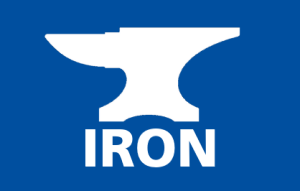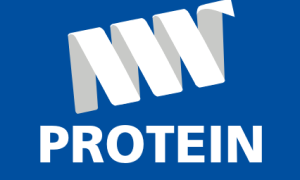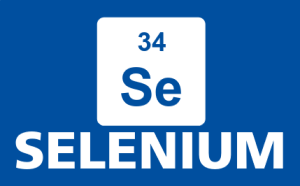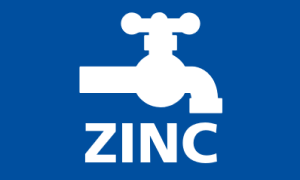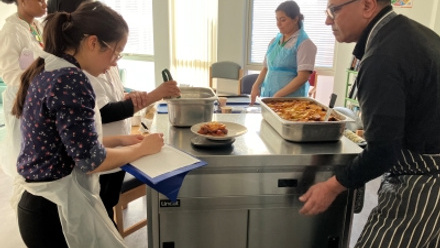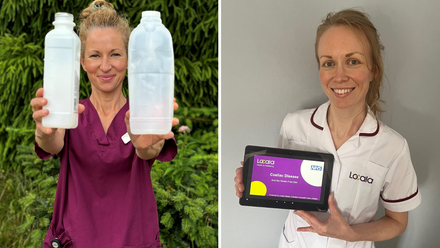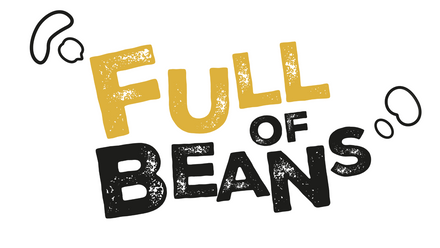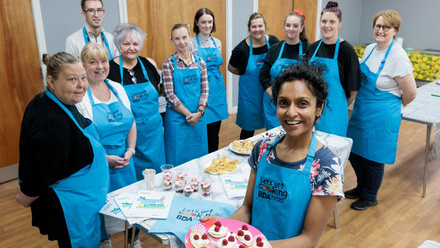Introduction
Nutritional Considerations
Red meat is a key contributor to saturated fat, protein, iron, zinc, selenium and vitamin B12 intakes and processed meat is a key contributor to salt and saturated fat intakes.
Limiting red meat in our diet to no more than 70g per day (or 350-500g cooked weight) per week and avoidance of processed meat should not compromise intakes or status of key nutrients. However, limiting red meat and avoiding processed meat would go a long way to help lower saturated fat and salt intakes whilst also significantly lowering the environmental impact of our diet.
At the same time, dairy foods are the second biggest environmental burden to red meat. The Eatwell guide has moderated the recommended dairy contribution to the diet by around a third to improve environmental impact whilst ensuring key nutrient intakes are met.
In addition to the notes in the core reference guide, the One Blue Dot working group have reviewed evidence around eight of the key nutrients found in red meat and dairy foods to give dietitians a handy guide for current intakes.
Click the images below to access more information on each of these key nutrients.
Other sources of key nutrients
Following a more environmentally sustainable diet, such as the Eatwell guide, means reducing meat (especially red and processed meat) and intake, moderating dairy intake and increasing plant-food sources of protein, whole grains starchy foods and fruit and vegetables. Such dietary regimens have been proven to not only lower the environmental impact of our food choices but also meet all macro and micronutrient recommendations. A more sustainable diet does not necessarily have to exclude red meat or dairy altogether – therefore meat and dairy nutrient intakes need not be compromised.
However, as part of completing our practical guide for dietitians, the One Blue Dot working group have compiled information on alternative sources of key nutrients.
Infographics and recipes
These infographics are designed to provide easy to digest information on the purpose of and sources of key nutrients that may be important in a more plant-based diet. Simply click the images or links below, and then download the graphics.
Download this fantastic infographic developed by Megan Hughes RD and our Sustainable Diets Specialist Group.
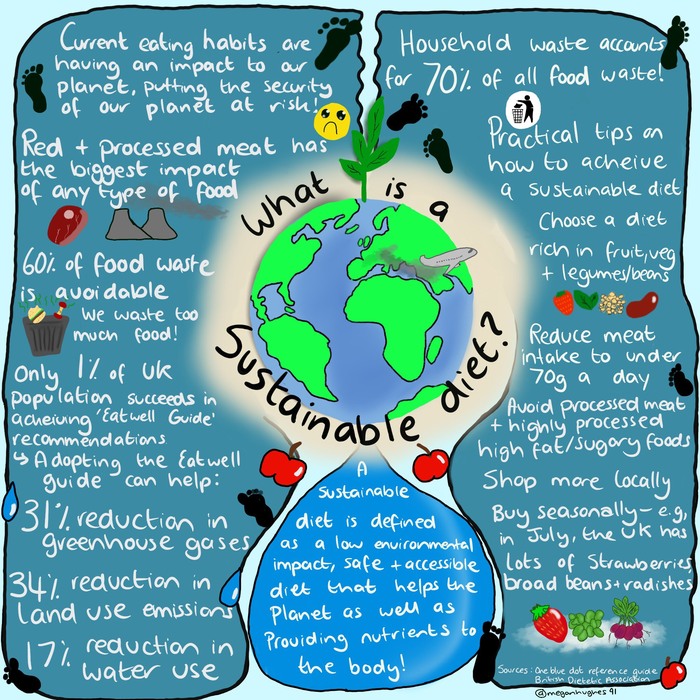
Watch this video produced by the Sustainable Diets Specialist Group and Nutribytes.
Download some of the key graphics from the main reference guide:
Download these veggie recipes developed with Quorn as part of Sustainable Eats.
Further links and resources
Helpful links
- DEFRA - Green Food Project (2012)
- Eating Better - Better by Half
- FAO - Dietary guidelines and sustainability
- Food Climate Research Network
- Food Ethics Council
- Food Systems Academy
- Marine Conservation Society
- Marine Stewardship Council
- Medact
- Practice Based Evidence in Nutrition (PEN) - Food Security
- Soil Association
- Sustain
- The EAT-Lancet Commission on Food, Planet, Health
- Love Food Hate Waste and WRAP - tackling food waste
- WWF - Livewell: Healthy Eating for a Healthy Planet
- Plant-based food Food Fact Sheet
- BBC Food calculator: What's your diet's carbon footprint?
Other resources
- Healthcare professional resources from Alpro
- Protein Guidelines: why the time is right for an update? [Quorn Foods, June 2019]



